After a grievously long interval - given that our first toe in this water was in early March, we are striving to put momentum back into this project. The Marine Biological Association has come out of lockdown, fuloughs are over, and all we have to do is pick up where we left off (as though that were easy).
The next step is to contact all our intrepid volunteers from March and plan some activity,, which should be in the middle of October.
We have firmly mailed our colours to the iNaturalist mast, and have set up three projects on that excellent platform. And we have set up three 'projects' on it, as illustrated below.
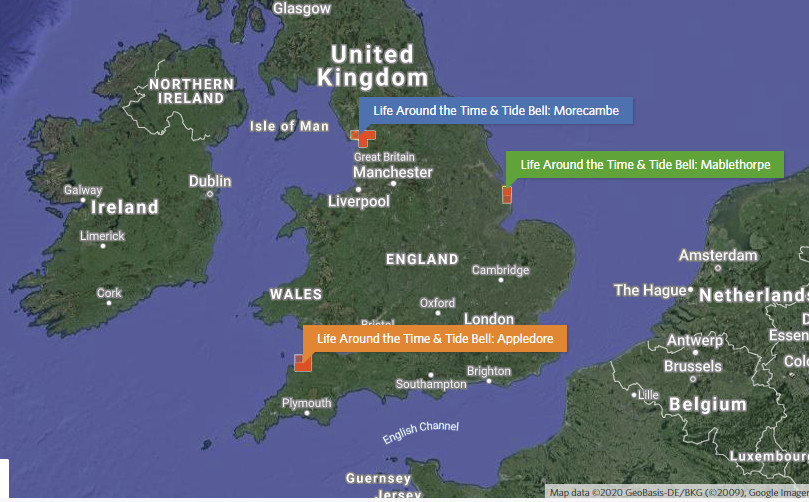
This is the link to the overall project, and here are links to the Appledore, Morecambe and Mablethorpe projects.
This is to keep you up to date on developments since our meetings not much more than a month ago - though it also seems like a long time indeed.
We were in the process of distilling the various various proposals into something concrete. That is still in hand, and certainly remains our intention, but unfortunately the Marine BIological Association has found it necessary to furlough Jack Sewell, who was a key part of these plans.
We - Jack, Jon Parr (Jack's colleague at the MBA), Juliette Heppell and I - will return to things just as soon as we can. There are already intriguing germs of thoughts as to the way forward, and we are confident of an extension to the project from UKRI - so it won't disappear.
In the meantime please look after yourselves; and if you or anyone you know has small children at home who need occupying have a look at our new Learning at home page that Juliette has created on our website, a new activity each day to keep them creatively occupied.
A virtual meeting was held on march 23, between the MBA team, Time and Tide Bell team, and some of those who had attended the workshops.
The first point was obvious - the radical changes to life in the UK due to the coronavirus epidemic have had a big impact on the project, taking place as they have at its most critical phase: trying to define its shape. There is a chance of extending funding until November.
Jack Sewell ran through his draft report - which revealed much commonality between the different locations. This is well illustrated by a word cloud of the proposals put forward:
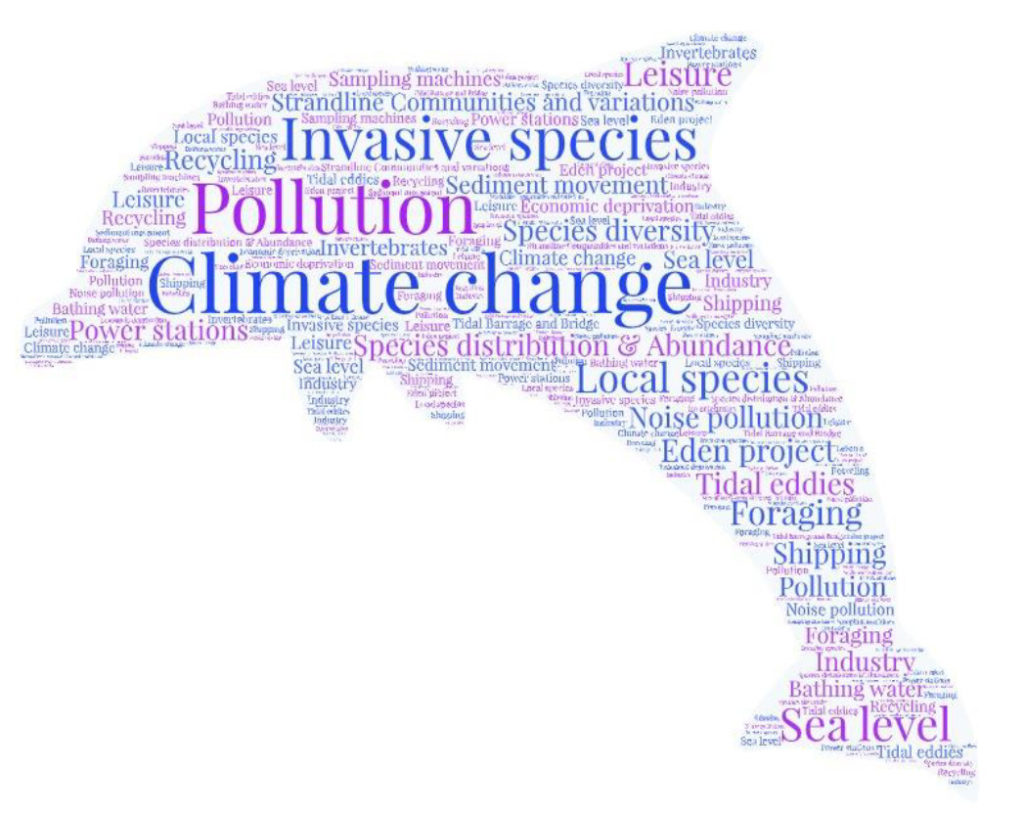
Similar work had been done on the must-haves for such a project:
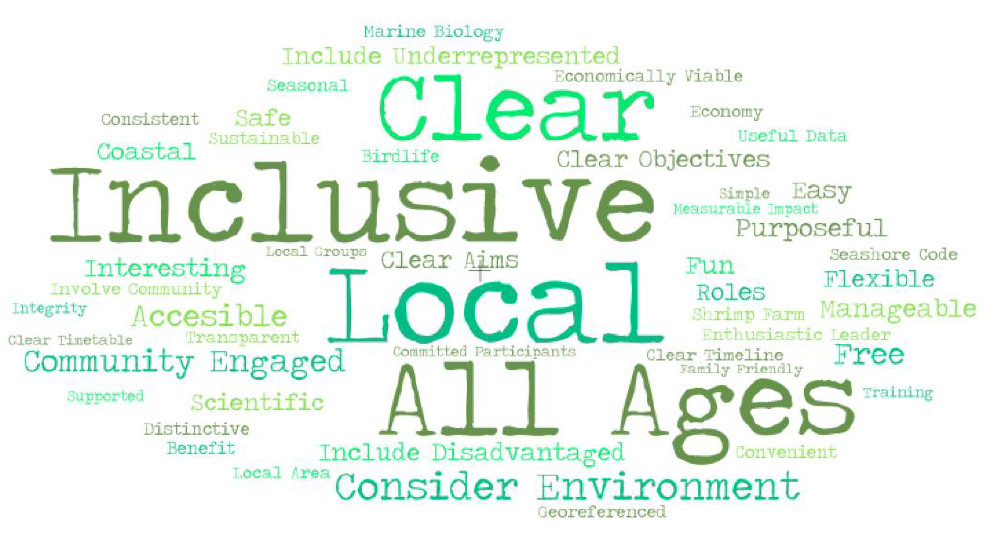
And the must-not-haves:

The project remains work in progress. Watch this space; all those who attended will be kept fully in touch with developments.
On March 4th 2020 about 20 people assembled at the Ferryboat Inn (many thanks to Golden Sands Holiday Park for lending it to us) to explore Citizen Science possibilities. As with our other meetings this was very ably led by Jack Sewell of the Marine Biological Association.
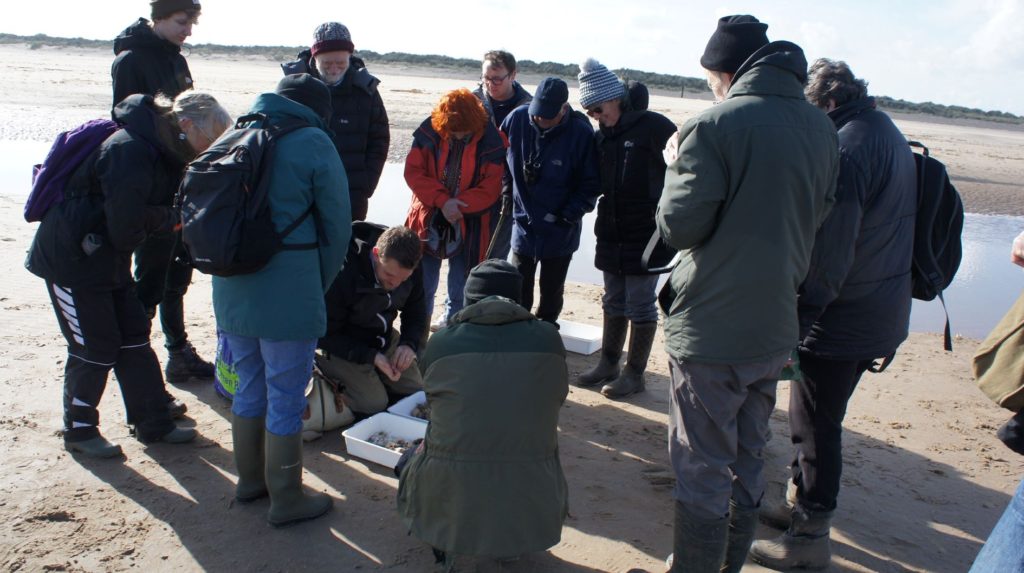
The beach in Mablethorpe has rather different features to the sites of the two previous workshops; above all, there is a plethora of shells, which made for a fascinating comparison.
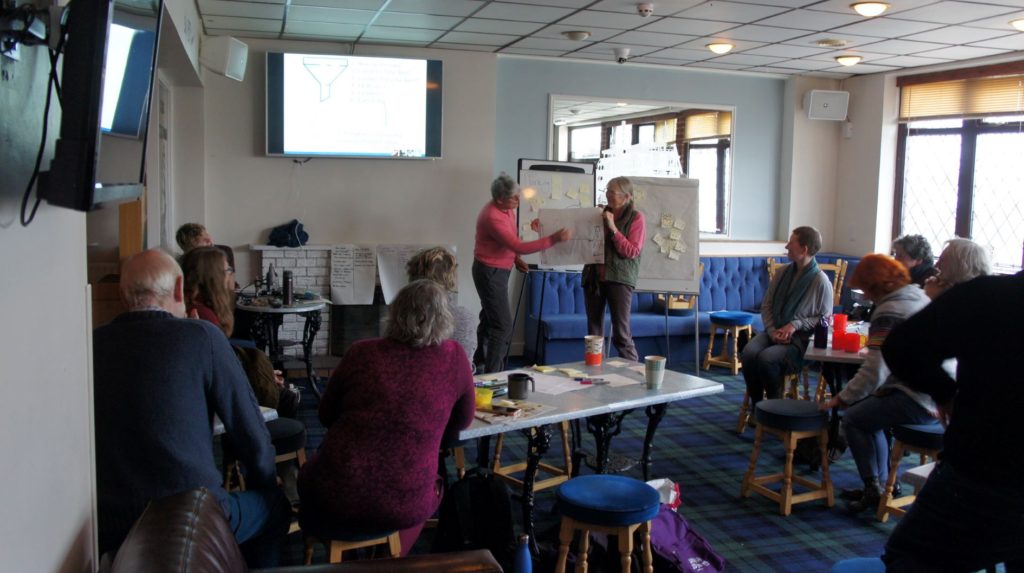
The aim of the game was to develop ideas, inspired and put forward by the local community, for projects that could be explored by all age groups. Plenty emerged - and after a process of distillation the results will be shared with whoever wants to engage with them. Stand by...
On March 3rd 2020 about 20 people gathered to spend the day in the Platform, the splendid venue based on the former railway station near the Morecambe seafront. It was a grey day, and rather a damp one, for the session outside exploring the marine life near the bell (fortunately it was low tide).
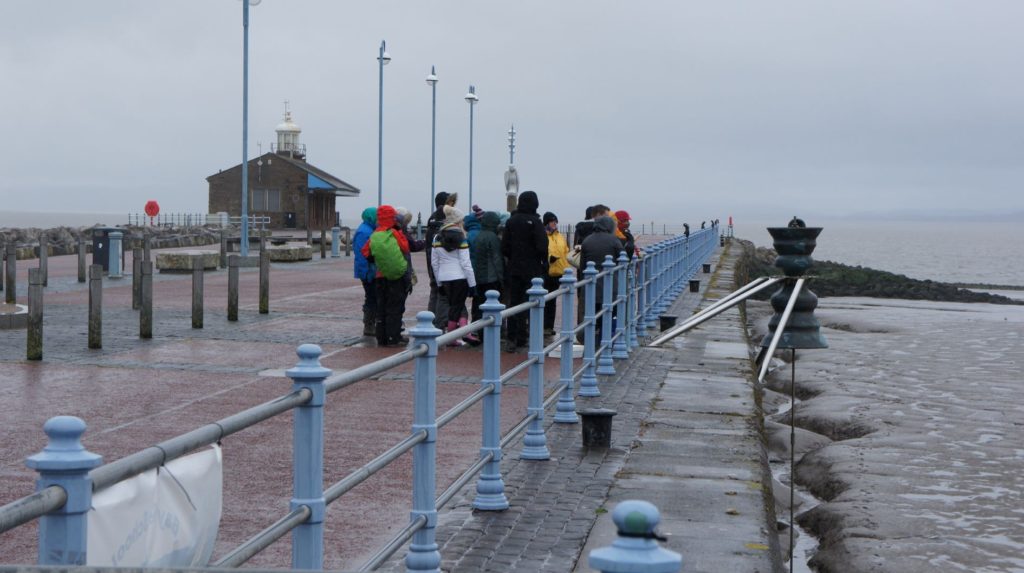
There was an excellent briefing on the subject by Jack Sewell from the Marine Biological Association. After the session exploring the foreshore near the bell the afternoon was spent developing ideas for a citizen science project linked to the bell.
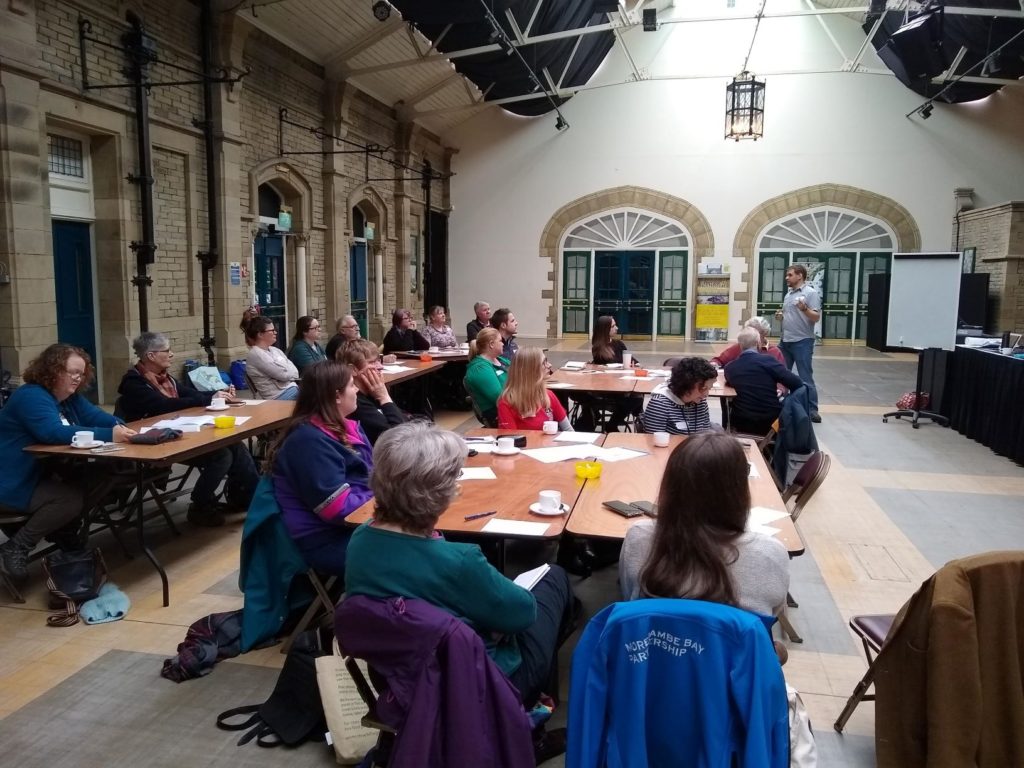
As with the meetings in Appledore and Mablethorpe a number of very promising ideas were put forward for a programme of Citizen Science activity, which will be considered, distilled, and shared with whoever from the group who is interested as soon as possible.
Our first Citizen Science day was on February 26, and well attended by about 15 people, all of whom had an excellent briefing on the subject by Jack Sewell from the Marine Biological Association. After a session exploring the foreshore near the bell the afternoon was spent developing ideas for a citizen science project linked to the bell.
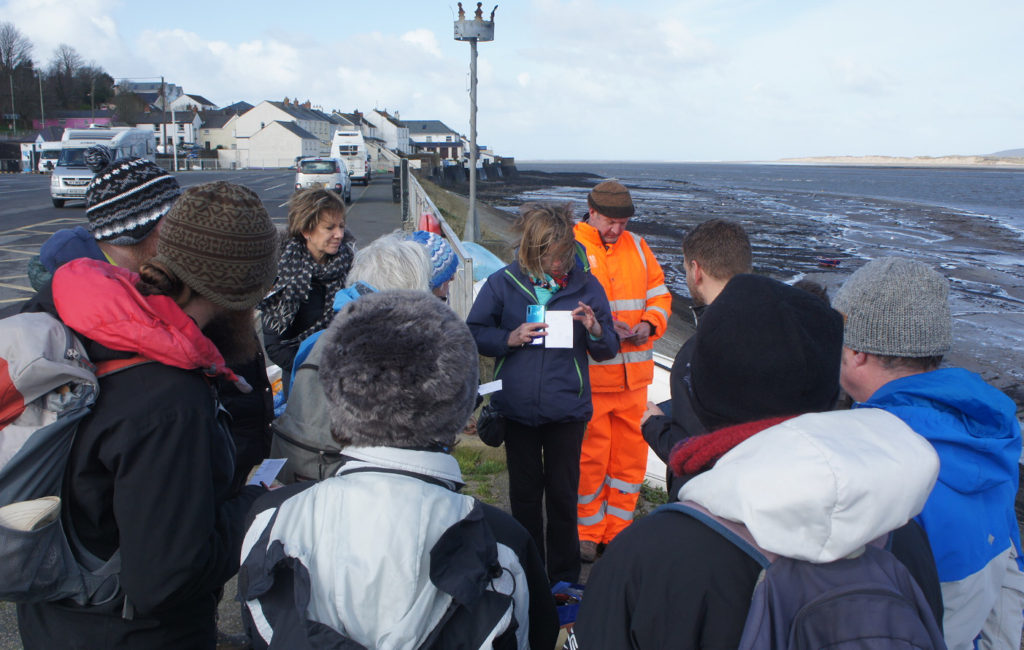
Here the group is assembling near the bell, prior to time spent on the foreshore, as seen below - the river Torridge was at low tide.
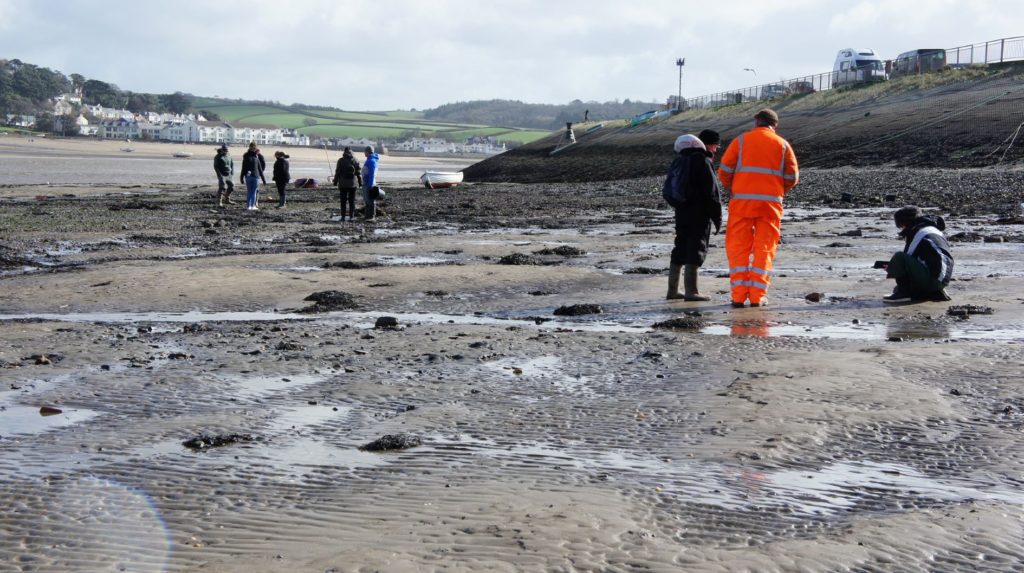
As with our other recent Citizen Science meetings, this was a pilot, exploratory session, to explore ideas. A number were proposed by the community for activity linked to the bell; they will be digested, with an eye on the proposals from other sites, and as soon as is humanly possible they will be discussed with anyone who joined in to the session.



